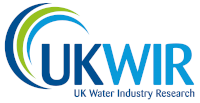UKWIR seeks partners for carbon accounting workbook
17/04/2024
Each year, water companies in England and Wales must report their greenhouse gas (GHG) emissions to the industry regulator. Companies across the UK and Ireland also report on other aspects of their emissions to comply with other legalisation and regulations, such the Streamline Energy and Carbon Reporting (SECR).
Working with experts across the water sector, UKWIR developed a standardised workbook for estimating operational GHG emissions - known as the Carbon Accounting Workbook (CAW). First launched in 2005, it is updated regularly to reflect the needs of the industry, and changes in carbon accounting practices.
“We are excited to announce the opportunity to develop the next generation of the carbon accounting workbook – a crucial tool for the UK and Irish water sector in managing and reporting its greenhouse gas emissions. We are seeking partners with new ideas to rebuild the CAW whilst improving its functionality, the user experience and the reporting of GHG emissions,” said Mandy Fletton, senior programme manager, UKWIR.
“This project will also ensure the sector’s GHG emission factors are updated so that they remain current and aligned with official data sources and best practices. This will empower water companies to make even better-informed decisions about their carbon reduction strategies, further solidifying their collective commitment to a more sustainable future."
The water industry is the first sector in the UK to commit to net zero carbon emissions from their operations by 2030, and using a consistent approach to carbon accounting means the water sector’s emissions reporting is robust and aligned with current best practice.
For the next generation of the CAW, UKWIR is seeking partners to:
• Deliver a new tool that covers all water industry -specific emissions sources, hosted on an appropriate digital platform
• Update the emission factors to reflect 2024 UK and Irish government conversion factor values
• Facilitate a review to ensure core functionality of CAW version 18 is retained, including reporting
• Liaise with the project steering group to confirm any additional functionality required to meet the water sector needs including additional emission factors and estimating methodology
• Incorporate outputs of other sector research activity, for instance outputs of recommendations to process emission calculation methodology
• Undertake thorough quality assurance testing of the tool, using existing company data
• Facilitate water company user testing of the tool by providing workbooks already populated with companies’ most recent data
• Provide comprehensive user guidance and a helpline for companies to use.
Since its introduction, the UKWIR Carbon Accounting Workbook has undergone yearly revisions to reflect evolving best practices and regulatory requirements.
Rachael Cooney, carbon reporting and accounting manager at Yorkshire Water said, “Having a new version of CAW developed every year is invaluable as it means we’re up to speed with the most relevant emission factors and can select previous years data to track progress, compare and contrast previous years emissions, and set benchmarks.
“Most crucially, UKWIR allows water companies to drive the changes to each version of the CAW – and because we are heavily involved in creating the workbook, it is dynamic and responsive to the changing legislative, environmental and regulatory drivers.”
This project aligns with UKWIR’s fifth research theme: Achieving net zero carbon
To submit an expression of interest, visit: https://ukwir.org/ukwir-projects-open-to-expressions-of-interest
